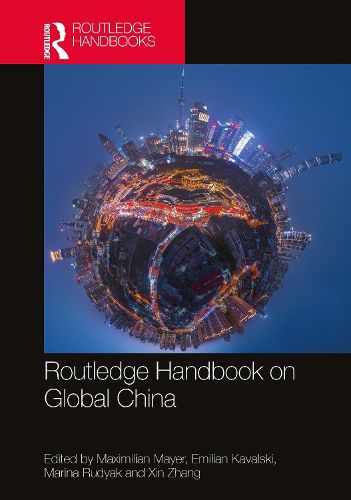Readings Newsletter
Become a Readings Member to make your shopping experience even easier.
Sign in or sign up for free!
You’re not far away from qualifying for FREE standard shipping within Australia
You’ve qualified for FREE standard shipping within Australia
The cart is loading…






This innovative Routledge Handbook sheds light on the complex and transformative nature of Global China, prompting a re- evaluation of existing theories on global and regional dynamics. It encourages theoretical innovation, methodological reflection and analytical transformation, providing new avenues for critical engagement with China's global interactions. The chapters propose three key commitments for the study of Global China: Advocating for diverse viewpoints and non- binary frameworks, employing nuanced analysis to understand Beijing's transnational relations and utilizing alternative methodological approaches to explore different trajectories for China in international affairs.
The Handbook also identifies and avoids epistemic traps that hinder the understanding of Global China, such as othering and strategic narcissism. It suggests five analytical frameworks related to relationality, global capitalist processes, language and discourse power, planetary- scale modernization and experimentalism to guide future research. By adopting these frameworks, researchers can gain a deeper understanding of the multifaceted factors shaping Global China within the broader global context of cooperation, competition and crisis.
$9.00 standard shipping within Australia
FREE standard shipping within Australia for orders over $100.00
Express & International shipping calculated at checkout
This innovative Routledge Handbook sheds light on the complex and transformative nature of Global China, prompting a re- evaluation of existing theories on global and regional dynamics. It encourages theoretical innovation, methodological reflection and analytical transformation, providing new avenues for critical engagement with China's global interactions. The chapters propose three key commitments for the study of Global China: Advocating for diverse viewpoints and non- binary frameworks, employing nuanced analysis to understand Beijing's transnational relations and utilizing alternative methodological approaches to explore different trajectories for China in international affairs.
The Handbook also identifies and avoids epistemic traps that hinder the understanding of Global China, such as othering and strategic narcissism. It suggests five analytical frameworks related to relationality, global capitalist processes, language and discourse power, planetary- scale modernization and experimentalism to guide future research. By adopting these frameworks, researchers can gain a deeper understanding of the multifaceted factors shaping Global China within the broader global context of cooperation, competition and crisis.